This article was co-authored by Fernando Campos and by wikiHow staff writer, Danielle Blinka, MA, MPA. Fernando Campos is a Licensed Marriage and Family Therapist and the Founder of Avant-Garde Therapy in Davie, Florida. Fernando has over 11 years of experience and offers telehealth, individual therapy, couples counseling, teen therapy, and family therapy programs. He has worked as a community educator on the topics of intimate partner abuse and trauma, anger management, family engagement, and counseling within alternative education. He is trained in CBT (cognitive behavioral therapy), Solution Focused Therapy, and BSFT (brief strategic family therapy). Fernando holds a Master’s Degree in Marriage and Family Therapy from Nova Southeastern University.
There are 10 references cited in this article, which can be found at the bottom of the page.
This article has been viewed 68,005 times.
When there's too much going on around you, you might become overstimulated, causing you to feel stressed or anxious. Fortunately, we have lots of simple tips that will help you feel calm again.
Steps
Making Lifestyle Changes
-
1Build breaks into your schedule to allow you time for rest. Doing too much can overstimulate you, so you need to rest daily. Scheduling breaks throughout your day will help you remember to take them. Try to alternate between activity and rest to avoid overstimulation.[1]
- For example, you might build rest into your schedule by taking a coffee break in the morning, relaxing for 10 minutes on your lunch break, taking an afternoon break, and doing a hobby for 30 minutes in the evening.
Tip: If you get overstimulated often, review your schedule to make sure you’re not pushing yourself to do too much.
-
2Limit your consumption of caffeine. Most adults can safely drink up to 4 cups of coffee a day, but some people are especially sensitive to caffeine. If you think you might be consuming too much caffeine, cut back on it gradually so that you don’t experience withdrawal symptoms.[2]
- You can cut back gradually by drinking smaller cups of coffee or cutting back on 1 caffeinated drink per day. Give yourself a week to adjust to the lower level of caffeine before you make another cut.
- If you feel jittery after drinking a small amount of caffeine, you may want to cut it out of your diet completely.
- If you enjoy the taste of coffee, switch to decaf so you can still enjoy your morning brew.
Advertisement -
3Watch no more than 2 hours of TV each day. TV is a visual stimulate, and it can overwhelm you if you watch too much. Make sure you’re getting less screen time by setting time limits for yourself. Don’t watch more than 2 hours of TV at a time. Otherwise, you might get overstimulated.[3]
- Although binge-watching TV can be fun, it’s not a good idea if you frequently deal with visual overstimulation.
-
4Limit time spent on your phone, especially social media. Scrolling through your phone may be a fun way to pass the time, but it can also stress your mind because of the flashing visuals and constant stream of information. Set a timer for yourself when you’re playing on your phone to limit yourself to short periods of time, such as 30 minutes to an hour. Additionally, take frequent breaks away from your phone.[4]
- It might help to put your phone in another room so you’ll be less tempted to check it.
- You can also use an app like Moment, Offtime, or App Detox to help you cut back on your screen time. These apps allow you to set online limits for yourself so that certain websites and apps are blocked at certain times of the day or after you've spent a designated amount of time online.
-
5Avoid large crowds if you get overwhelmed from being around too many people. Being in a large crowd will expose you to noise, visual stimulation, and touch stimulation. If you know this is a trigger for you, it’s best to avoid going to places you know will be very busy.[5]
- For example, go to the grocery store at their non-peak hours or order curbside service, if your grocery store offers it. Similarly, purchase items online rather than going to a packed mall.
Removing the Stimulation
-
1Change your environment. Move to a location that feels more relaxing to you. This can give you a break from the stimulation so you can calm down. Spend as much time as you need in the relaxing environment.[6]
- For example, if you’re overstimulated, go sit outside in nature, relax in your favorite chair, or go to a room with peaceful decor.
-
2Turn down any noise that’s in the environment. Noises are also a common stimulate that can cause you to feel overwhelmed. This can include a television, radio, or anything else that’s making noise. If people or pets are making noise, try to quiet them down or move to another room.[7]
- If you can't reduce the noise, leave the location or use earplugs. As another option, you can try listening to calming music through earbuds, which might help.
-
3Cut down on visual stimulation by dimming the lights. Go to a room without a lot of images on the walls, if you can. You can also close your curtains to minimize the amount of light in the room, if necessary.[8]
Tip: Covering your eyes with an eye mask can help you block out all of the light, which can help you relax when you’re visually overstimulated.
Coping with Overstimulation
-
1Do a calming activity to help yourself relax. Certain activities can help you relax when you’re overstimulated. Additionally, they can help prevent overstimulation before it starts if you give yourself a chance to relax. For example, you might try one of the following activities:[9]
- Read a book
- Listen to calming music
- Give yourself a massage
- Cuddle with your pet
- Color
- Soak in a warm bath
-
2Use mindfulness to ground yourself in the moment. Mindfulness means living in the moment, which can help you avoid getting anxious. You can be more mindful by engaging your 5 senses. Here’s a few ways to do that:[10]
- Focus on what you can see in your environment. Describe it to yourself or look for a certain color, such as blue.
- Listen to what you can hear in your environment. Try to pick out the individual sounds you hear, like the rustling of leaves.
- Sniff the air to see what smells you can notice. For example, you might smell oncoming rain.
- Concentrate on your sense of touch to see what you can feel in your environment. For instance, feel the textures of items around you or notice how the wind feels against your skin.
- Sip on a cup of tea or eat a hard candy to stimulate your sense of taste.
-
3Use deep breathing exercises to relax your body and mind. Inhale slowly for a count of 5, then hold your breath for a count of 5. Next, exhale slowly to a count of 5, completely emptying your lungs. Continue to breathe to a 5 count until you feel relaxed.[11]
- As another option, inhale deeply to fill your lungs with air, then put your finger over 1 nostril. Slowly exhale through your uncovered nostril. Switch sides and repeat the breathing exercise.
-
4Meditate for 10 minutes to calm your mind. For a simple meditation, sit in a comfortable position, then close your eyes. Focus on your breath as you inhale and exhale. When your mind wanders away from your breath, gently bring your attention back to it. Sit for at least 10 minutes.[12]
- If you’re struggling to focus on your breath, it helps to count your breath with each inhale.
- You can also use a meditation app, such as Insight Timer, Headspace, or Calm.
Expert Q&A
-
QuestionWhat are signs of being overstimulated?
 Fernando CamposFernando Campos is a Licensed Marriage and Family Therapist and the Founder of Avant-Garde Therapy in Davie, Florida. Fernando has over 11 years of experience and offers telehealth, individual therapy, couples counseling, teen therapy, and family therapy programs. He has worked as a community educator on the topics of intimate partner abuse and trauma, anger management, family engagement, and counseling within alternative education. He is trained in CBT (cognitive behavioral therapy), Solution Focused Therapy, and BSFT (brief strategic family therapy). Fernando holds a Master’s Degree in Marriage and Family Therapy from Nova Southeastern University.
Fernando CamposFernando Campos is a Licensed Marriage and Family Therapist and the Founder of Avant-Garde Therapy in Davie, Florida. Fernando has over 11 years of experience and offers telehealth, individual therapy, couples counseling, teen therapy, and family therapy programs. He has worked as a community educator on the topics of intimate partner abuse and trauma, anger management, family engagement, and counseling within alternative education. He is trained in CBT (cognitive behavioral therapy), Solution Focused Therapy, and BSFT (brief strategic family therapy). Fernando holds a Master’s Degree in Marriage and Family Therapy from Nova Southeastern University.
Licensed Marriage and Family Therapist On the physical side, signs can include shallow breathing, muscular tension, increased heart rate and, in more extreme cases, dizziness or nausea. On the psychological side, signs can include difficulty remembering things, difficulty staying on some particular task, ruminating thoughts, etc.
On the physical side, signs can include shallow breathing, muscular tension, increased heart rate and, in more extreme cases, dizziness or nausea. On the psychological side, signs can include difficulty remembering things, difficulty staying on some particular task, ruminating thoughts, etc.
References
- ↑ https://www.apa.org/monitor/2019/01/break
- ↑ https://www.nhs.uk/mental-health/conditions/generalised-anxiety-disorder/self-help/
- ↑ https://www.cdc.gov/pcd/issues/2022/21_0324.htm
- ↑ https://www.helpguide.org/articles/mental-health/social-media-and-mental-health.htm
- ↑ https://www.nami.org/Your-Journey/Individuals-with-Mental-Illness/Taking-Care-of-Your-Body/Managing-Stress
- ↑ https://www.nami.org/Your-Journey/Individuals-with-Mental-Illness/Taking-Care-of-Your-Body/Managing-Stress
- ↑ https://www.nccd.edu.au/professional-learning/classroom-adjustments-mental-health
- ↑ https://www.iidc.indiana.edu/irca/articles/sensory-integration-tips-to-consider.html
- ↑ https://www.health.harvard.edu/heart-health/5-ways-to-de-stress-and-help-your-heart

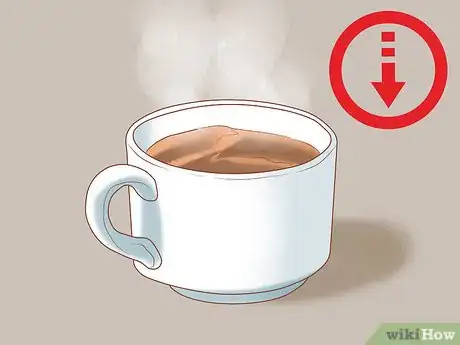


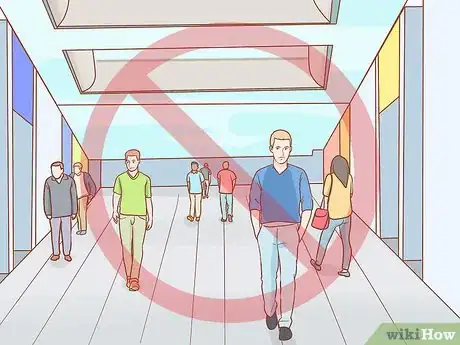
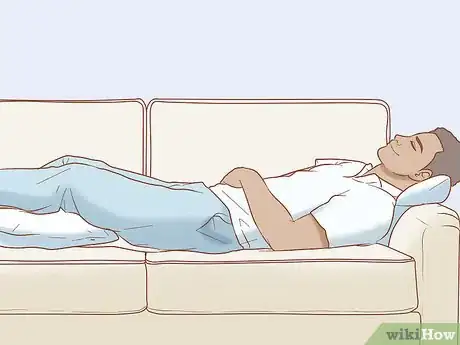
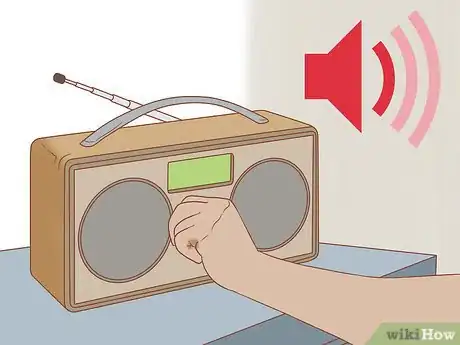



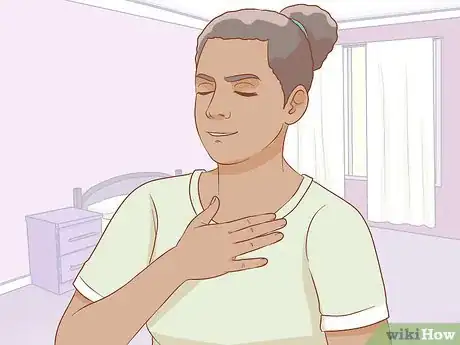
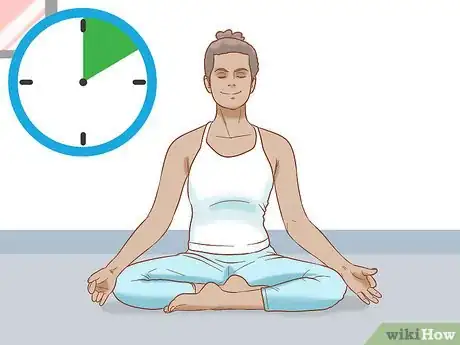


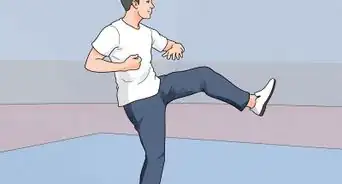






















































Medical Disclaimer
The content of this article is not intended to be a substitute for professional medical advice, examination, diagnosis, or treatment. You should always contact your doctor or other qualified healthcare professional before starting, changing, or stopping any kind of health treatment.
Read More...